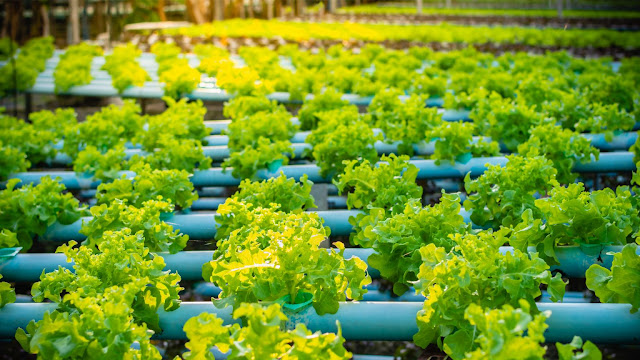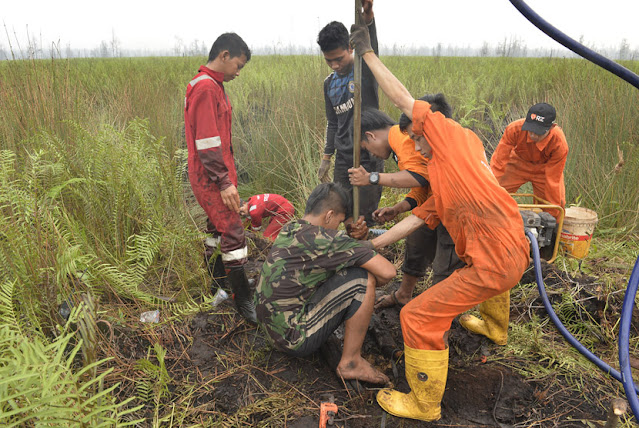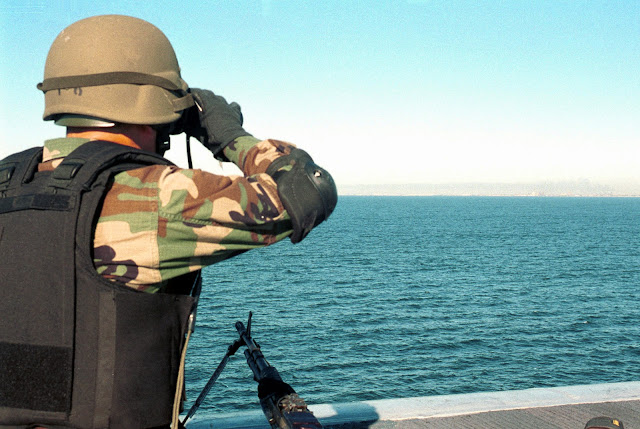Aquaponics; Combination of Conventional Fish Culture Along With the Hydroponic Cultivation of Plants
 |
| Aquaponics |
Aquaponics is a term originates from
the two words hydroponics (the growing of plants usually in a soil-less
environment) and aquaculture (the growing of fish in a closed environment). In
aquaponics, both hydroponics and aquaculture methods are combined to grow
fishes and plants together. Aquaponics is a way to grow fish and vegetables at
the same time. Just feed the fish and the fish will feed plants through their waste
output (rich in nutrients).
There
is no need to use fertilizers, less water is used in aquaponics for the crops.
An Aquaponics
system contains fish in tanks, whose wastewater is pumped to vegetables in grow
beds filled with gravel. The roots take up the nitrates and the water returns
to the tank, filtered clean. The water quality of an aquaponics system is the
most important aspect of any garden, and two things in particular are essential
for the proper growth of plants and fish. First of all, fish need oxygen to
live and grow, so one need a good aeration system to maintain the right
temperature.
Fish
also need to live in an environment free of extreme temperature fluctuations,
and they should be protected from a variety of harmful chemicals. Many benefits
of Aquaponics systems include the ability to control temperature and the
possibility of changing crops according to the demand. Farmers can also control
water use, as the water used is recycled or reused. Also, the system eliminates
the need for weeding, as the plants are constantly fed with nutrients.
Moreover,
an Aquaponics system is environmentally friendly, as it does not disturb
the habitat. This means that people can build a system in any space, including
the yard, and have the same benefits as an organic garden. To begin aquaponics,
people need fish. Most fish in aquaponics system are freshwater or saltwater.
Tilapia fish are the most common, as they are tolerant of changing water
conditions and crowding. The number of plants people can grow depends on the
number of fish in the system. Tilapia is one of the best fish to raise in
aquaponics because they are hardy fish and can adapt to their environment and
withstand ideal water conditions. They are resistant to many pathogens,
parasites and in handling stress.
To maintain a healthy ecosystem, Aquaponics systems need two separate containers. One is for fish waste, and the other container houses the plants. The fish waste is used to supply nutrients and keep the plants healthy and strong. Beneficial bacteria in the growing media break down fish waste into plant food. This provides plants with essential nutrients for fast growth. It also prevents weed buildup and aeration of the water. The plants can even eat the waste of the fish. Another important part of aquaponics is the media bed, and it can be made from a heavy duty plastic tray or a wood pallet crate. The bed is flooded and drained of nutrient rich water to give the plants the nutrients and oxygen they need.



Comments
Post a Comment